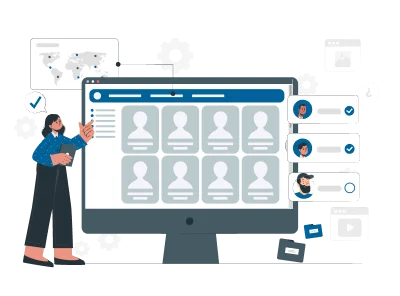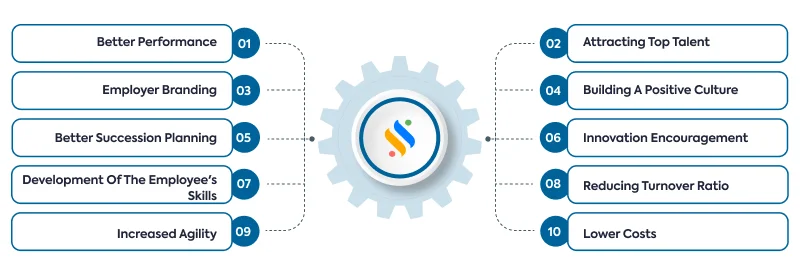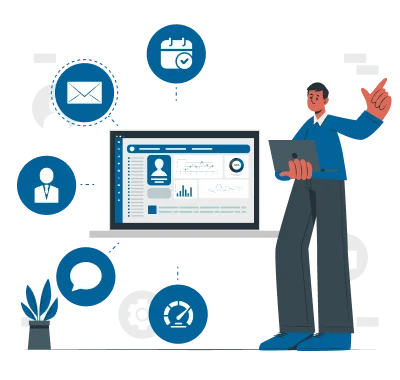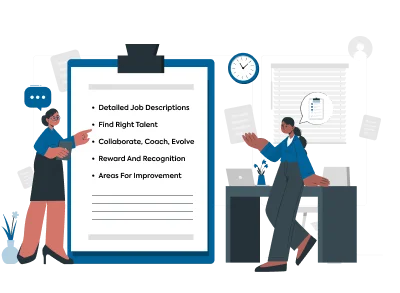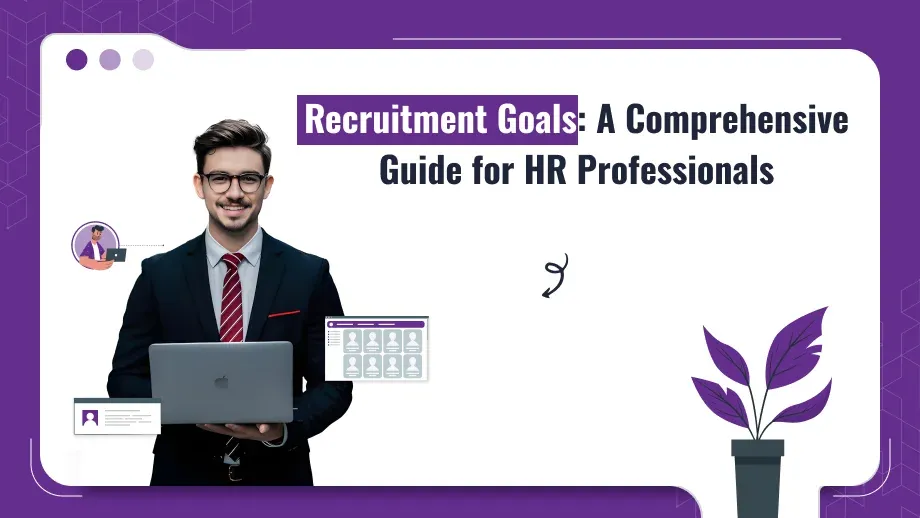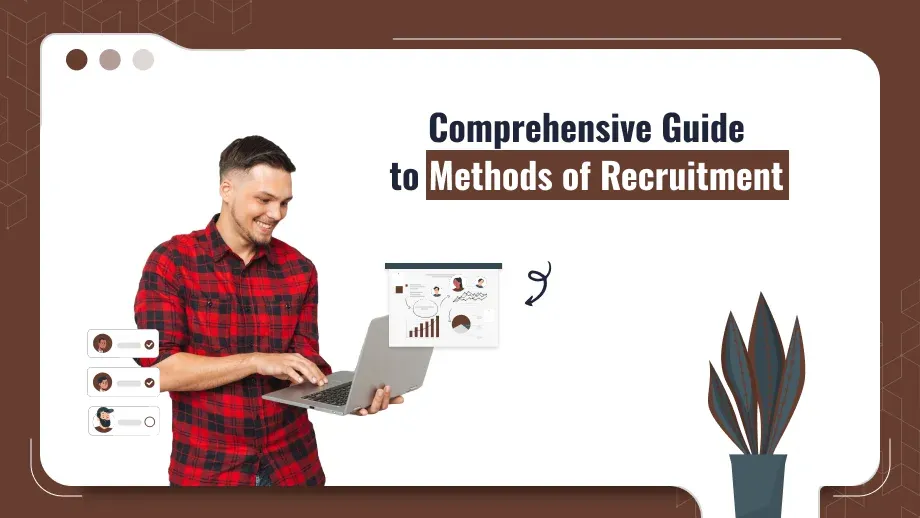Talent management is the process of strategically attracting, developing, and retaining employees to meet the objectives of an organization. It focuses on making sure the right people are in the right jobs to further overall performance.
Grab a chance to avail 6 Months of Performance Module for FREE
Book a free demo session & learn more about it!
-
Will customized solution for your needs
-
Empowering users with user-friendly features
-
Driving success across diverse industries, everywhere.
Grab a chance to avail 6 Months of Performance Module for FREE
Book a free demo session & learn more about it!
Superworks
Modern HR Workplace
Your Partner in the entire Employee Life Cycle
From recruitment to retirement manage every stage of employee lifecycle with ease.


Seamless onboarding & offboarding
Automated compliance & payroll
Track performance & engagement
How Effective Talent Management Tool Drives Business Success?
- what is talent management
- 6 min read
- September 12, 2024
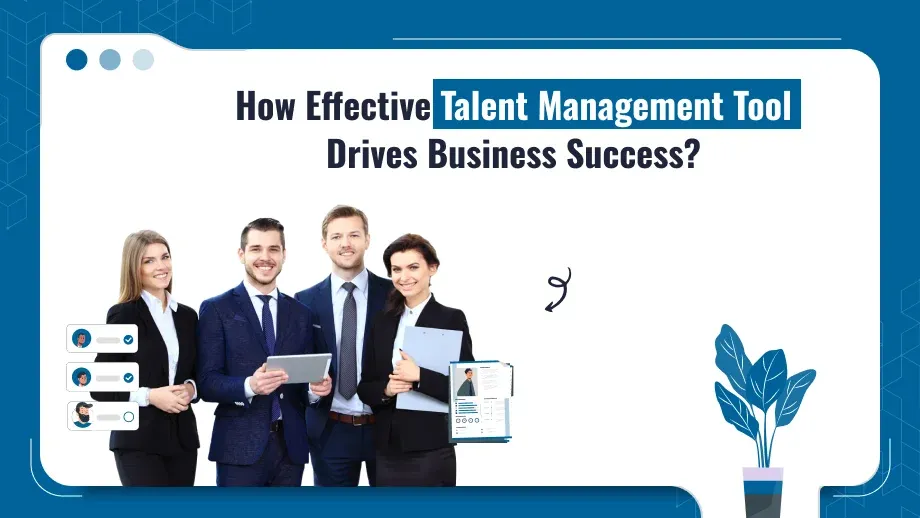
When times are good, companies sometimes forget that the employees matter.
Well, now’s the time to change the focus to talent management tool, which includes attracting, retaining, and developing your talent or your workforce.
The most crucial thing a HR can do is – attract, manage, and use talent effectively. Most firms hardly consider the question of the talent that will be used to implement new ideas. Keeping a focus on talent will help organizations improve performance and competitive advantage in the market.
HR Talent management encompasses the process of hiring, maintaining employee satisfaction and productivity, and aiding employees in skill development over time. This approach enables the organizations to guarantee a high-performing-skills workforce, learning culture organizations, and an employer brand that brings benefit to the bottom line.
This guide covers everything you need to know about talent management tool.
What Is Talent Management Tool?
Talent management tool, therefore, is an organized way in which an organization plans and organizes to make sure that it hires the right talent in the right place and nurtures it.
This includes:
- Identification of the skill gap,
- Followed by the recruitment of just the right people,
- Induction, development of capabilities of individuals,
- Training to meet future needs,
- Finally, engagement and motivation of workers to meet long-term goals
It describes talent management as a broad area of many different human resource practices in India. The objective talent management practices acquire the right people and then enables those people to contribute to the business’s success.
Broken down, talent management tool is,
- The integration of most HR processes beyond mere individual functions.
- The strategy requires a holistic approach to maximize the effect.
- Key areas of focus include recruitment strategy, learning and development, performance management, and workforce planning meant to improve the employee experience.
Talent management tool is about developing a work environment that improves motivation and engagement from employees to enhance their performance.
If it is done properly, it yields a competitive advantage that is sustainable because for competitors.
It is a very critical HR-led initiative to drive a talent management process, aligned with the company’s goals, culture, and values. However, with the best HR services, you can do successful implementation.
Read More: 12 Effective Talent Sourcing Strategies for Long-Term Success!
See 3X revenue by hiring the right people with talent management!
Unlock your team’s potential with our Talent Management Software!
Importance Of Talent Management Strategy
Poor talent attraction and retention can lead to the failure of a firm to meet its goals. Effective strategies of talent management tool boost employees’ satisfaction, retain key workers, and also contribute to increased productivity. A well-designed strategy benefits both employees and organizations.
Here are some of the key reasons talent management practices are critical to organizational success:
Better Performance
When the right people are fitted into the right jobs, their contribution is much more effective in causing an upward graph in productivity.
Attracting Top Talent
A robust talent management strategy enables HR tools to identify exactly what skills and qualities they need.
Employer Branding
When your employees are happy and cared for, they will talk more positively about their company. Thus, it will enhance the reputation of the organization in the eyes of other people.
Building A Positive Culture
Talent management will bring a caring work environment that boosts morale, productivity, and performance.
Better Succession Planning
Identification and development of high-potential employees ensure the filling of key roles within less time. It keeps the business running without any lag.
Innovation Encouragement
Companies invest in the growth of workers and, therefore, create an environment that encourages innovation. This enables any business to outcompete others.
Development Of The Employee’s Skills
Providing training and professional development helps to fill the skill gap, enhances the performance of the employees, and retains them for a longer period in the company.
Reducing Turnover Ratio
The focus on keeping employees engaged, recognizing, and offering them career growth opportunities is the decisive factor in reducing the turnover ratio that retains valuable employees within the company.
Increased Agility
Talent management Tool allows a company to take advantage quickly of changes and new opportunities for critical tasks.
Lower Costs
Optimizing talent management decreases not only hiring costs but also avoidance of disruptions in business operations by avoiding frequent changes in the staff.
Benefits of Using Talent Management Framework
Some benefits of having a talent management company are:
- Efficiency/productivity: Good and committed employees will result in increased output per unit of time.
- Revenue: Generally, a great team equates to revenue.
- Quality: Better results can be expected from talented employees, especially if they feel their value to the company and are looked after accordingly.
- Cost: Good employees reduce costs because of thelessness of turnover, which is costly and time-consuming.
Industry-specific characteristics of the perfect high performer would include broad or specialized skills.
How To Do Good Talent Management? – Steps
These are the main 3 steps you should follow:
Quick allocation of talent: The ability to quickly move employees into vital projects as priorities change.
HR’s role in positive employee experiences: Being able to show HR actively contributes to making the workplace enjoyable for employees.
A strategic HR grouping: Having a group of HR professionals who are concerned with long-term goals and planning.
The following steps form the backbone of effective talent management tool:
Detailed Job Descriptions
Precise wordings of the job description give clarity to both recruiters and candidates on the role. The important information that should be in a job description includes but is not limited to. It should have the title of the job, location, responsibilities, required skills and tools, reporting lines, and salary/benefit details. This will help the candidate verify if they are suitable for the position and make more relevant applications.
Find Right Talent
Person-organization fit refers to individuals who fit the culture of the organization. They are happier and perform better compared to individuals who do not fit well in the organization. Although culture is intangible, it is clear from the behavior of individuals within an organization. Ensuring that candidates fit a company’s values ensures better engagement and performance.
Collaborate, Coach, Evolve
A culture of mentoring, workforce planning, and teamwork supports employee growth. Employees should be prepared for constant change in the future. Collaboration and regular feedback can help take the employee further for it.
Reward And Recognition
Recognition is not all about money. Anytime top talent rewards are personalized to what drives the employee. This jolts engagement and motivation.
Areas For Improvement
Employees need the right equipment and developmental opportunities to make their skills blossom. In turn, it will benefit the employees and the organizations by maintaining the current team’s skills.
These will be some of the main strategies in building a strong process of talent management tool.
Final Thought
In the end, effective talent management tool drives business outcomes. Indeed, in case underlying talent strategies were aligned with the organizational goals.
A well-executed process for talent management tool not only positively impacts productivity and increases employee engagement. Only organizations that have top HRMS software emphasize the development and satisfaction of their employees. You can contact Superworks for more understanding regarding this.
FAQs
What Is Meant By Talent Management?
What Are The 5 Functions Of Talent Management?
The core talent management activities encompass talent acquisition, which means hiring the best candidates; performance management encompasses evaluating and improving employee performance. The employees are also being trained and upskilled through learning and development, succession planning prepares the leaders of the future for significant responsibilities.
What Are The Five Stages Of Talent Management?
The five stages of talent management involve planning in which a company identifies its workforce needs; attracting, developing, motivating, retaining, and transitioning.
What Is The Role Of HR In Talent Management?
In talent management, HR does strategy formulation on issues to do with acquiring, retaining, and training employees. They will ensure that recruitment, performance assessment, and learning opportunities align the talent strategies with business objectives.
What Is The Main Objective Of Talent Management?
The key objective of talent management is to develop a talented and motivated workforce that is committed to organizational success. It aims at developing the employee's skills, enhancing employee retention, and linking employee development with business objectives.
